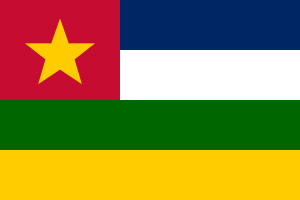Language/Pulaar/Grammar/Questions
Hi Pulaar learners! 😊
In this lesson, we will explore how to form and use questions in Pulaar. Understanding how to ask questions is crucial in any language, as it enables you to gather information, clarify meaning and engage in conversations with others.
Let's dive in!
Introduction
In Pulaar, there are different ways to ask questions depending on the type of question and context. Generally, questions can be formed by changing the intonation of the sentence or using question words. To form questions, we often begin with a question word followed by the verb and the subject. The question word changes depending on the type of question being asked.
Examples:
| Pulaar | Pronunciation | English |
|---|---|---|
| Mi tolno maayo? | mee tolnɔ may-yo? | Do you speak Pulaar? |
| Kon koowi mbera Senegal? | kon kow-wi m-bera Senegal? | Who is from Senegal? |
| E jabbondira? | ɛ jab-bon-di-ra? | Where are you going? |
Alternatively, questions can be formed by changing the intonation of the sentence. This involves ending the sentence with a rising tone to indicate a question.
Example:
- How are you? - Njangu ? (ɲæn-gu?)
Question Words
Question words are used to form questions and are an essential part of any language's grammar. In Pulaar, there are several question words that you should know:
- Woni - What
- Enderi - Who
- Qay - Where
- Kia - Why
- Meeri - When
- Intana - How
- Walla - Or
Example:
- Woni ndee mawo? -What do you want?
- Enderi ndee tolno Pulaar? - Who speaks Pulaar?
- Qay maaybe hawree? - Where are you from?
- Kia yu maayo Pulaar? - Why do you speak Pulaar?
- Meeri ndee yi? - When will you come?
- Intana ndee faamasaa? - How do you feel?
- Walla ndee lu beetaade bombii? - Red or blue shirt?
Types of Questions
In Pulaar, there are different types of questions that are used depending on the situation and context. These include:
Yes/No Questions
Yes/No questions are used to ask for confirmation or denial of a statement. They can be formed by changing the intonation of the sentence, or by using the question word mi (meaning 'do').
Examples:
- Tolno nde Pulaar? - Do you speak Pulaar?
- Mi tolno Pulaar? - Do you speak Pulaar?
- Kankoowi mbera Senegal? - Are you from Senegal?
- Mi ndonkaa nde? - Did you eat?
- E saabi ndee naataana? - Do you know where the market is?
Wh-Questions
Wh-questions are used to ask for information about a specific aspect of a topic. They are formed using a question word and the rest of the sentence follows the basic word order rules in Pulaar.
Examples:
- Woni ndee ndaa? - What is this?
- Qay maaybe hawree? - Where are you from?
- Enderi ndee tolno Pulaar? - Who speaks Pulaar?
- Kia yu maayo Pulaar? - Why do you speak Pulaar?
- Intana ndee faamasa? - How do you feel?
Tag Questions
Tag questions are short statements that are added to the end of a sentence to turn it into a question. They are usually used to seek confirmation or agreement with a previous statement.
Example:
- E saabi ndee naataana, walla ? - You know where the market is, right?
Alternative Questions
Alternative questions are used to present two or more options to choose from. They are commonly formed by using the question word walla.
Example:
- Walla ndee lu beetaade bombii? - Red or blue shirt?
Practice Dialogue
Here is an example dialogue to practice asking and answering questions in Pulaar:
- Person 1: Mi tolnaayo Francos? (Do you speak French?)
- Person 2: Hani, mi tolnaayo Francos. (Yes, I speak French.)
- Person 1: Enderi ko ekkooto? (Who is that?)
- Person 2: Awi, ko Aisha. (Oh, that's Aisha.)
- Person 1: Qay ko dahiraade? (Where did you study?)
- Person 2: Mi dahiraayoo Dakar. (I studied in Dakar.)
- Person 1: Meeri ko mawno? (When will you come?)
- Person 2: Min feew, mi mawno mercredi. (I think, I will come on Wednesday.)
- Person 1: Kia ndee tënga jogëë? (Why are you crying?)
- Person 2: Mi koh noñu, ndee walla keñéere. (I am hungry, that's why.)
Conclusion
In this lesson, we have learned how to ask questions in Pulaar. We have seen that questions can be formed using different techniques, including question words, intonation, and tags. To improve your Pulaar Grammar, you can also use the Polyglot Club website. Find native speakers and ask them any questions! Don't forget to review and practice the examples and dialogue included here. Keep practicing and you will improve!
➡ If you have any questions, please ask them in the comments section below.
➡ Feel free to edit this wiki page if you think it can be improved. 😎
Sources

